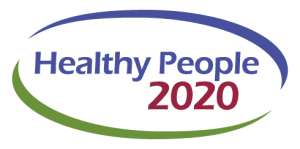This post is part of Healthy People 2020 in Review, a blog series highlighting how organizations across the nation are addressing social determinants of health — and how their efforts have helped us make progress toward Healthy People goals and objectives. The post describes how Buffalo Prenatal Perinatal Network, a Healthy People 2030 Champion, contributed to progress toward Healthy People 2020 objectives — as well as Healthy People 2030 objectives in the social determinants of health domain Health Care Access and Quality.
As the old saying goes, “it takes a village to raise a child.” But these days, the “village” is a network of organizations providing compassionate community care to help families stay safe and healthy.
Buffalo Prenatal Perinatal Network (BPPN) is one of those organizations, with a team of Community Health Workers and Family Support Specialists who help low-income pregnant and postpartum people and their families access health care and other support. Through its Healthy Families Program and Community Health Worker Program, BPPN provides a comprehensive set of services — including family planning, nutrition assistance, breastfeeding support, behavioral health care, and smoking cessation.
This work is closely aligned with objectives in Healthy People 2020 and Healthy People 2030 — and BPPN’s work at the community level contributes to national progress in the area of health care access.
“We’re trying to empower, support, and advocate for our clients — making sure they have the resources they need to make well-informed health decisions and to have a fair and equitable chance to be healthy,” says LuAnne Brown, President and CEO of BPPN.
Supporting the Whole Family
BPPN began in 1987 as part of a statewide network intended to address high infant mortality and low birth rates — particularly among Black or African American and Hispanic people in New York.
Today BPPN serves about 1,000 clients a year with a staff that includes many English-Spanish bilingual employees — some of whom are former clients themselves. The organization’s mission is to “empower women, fathers, and families to take charge of bettering their family health and well-being.”
Healthy Families is BPPN’s home visiting program for pregnant people and new parents who are at risk for depression, substance use, or domestic violence. The program’s goal is to address the social and economic conditions that can lead to poor health outcomes — and that can contribute to child abuse and neglect. During pregnancy and for up to 5 years after a child is born, Family Support Specialists visit clients in their homes to provide parenting education, employment resources, and other assistance.
The Community Health Worker Program provides intensive case management for pregnant and parenting people, many of whom are experiencing homelessness. Through the program, Community Health Workers help clients and their children enroll in health insurance, and Transportation Navigators help them get to prenatal appointments and well-baby visits.
BPPN’s focus on improving pregnancy outcomes and promoting better maternal and child health aligns with many Healthy People objectives, both within and outside the Health Care Access and Quality domain in the Healthy People 2030 Social Determinants of Health Framework. For example, BPPN’s work is directly related to Reduce preterm births — MICH-07.
“One of our big goals is to get moms to full term,” Brown says. “When we do that, we’re probably preventing a stay in the neonatal intensive care unit — and improving outcomes for mom and baby. We feel good about the fact that we’re able to get many of our clients to that point.”
Continuing the Work with Healthy People 2030
Brown cites maternal and infant mortality rates in her area that still fall short of national benchmarks as an ongoing challenge that will require increased efforts this decade. For example, BPPN is hoping to start an electronic blood pressure monitoring program to address high rates of hypertension among Black or African American women.
Aligned with Healthy People 2030’s increased focus on social determinants of health, BPPN will also continue efforts to make sure families’ basic needs are met — for example, that they have stable housing and enough food. Earlier in the COVID-19 pandemic, BPPN set up a temporary food pantry, and staff and volunteers delivered food directly to clients. The organization also started a new Baby Cafe where trained Lactation Counselors provide parents with free breastfeeding and chestfeeding support.
Ultimately, by providing access to these types of health care and support services, BPPN is giving more community members a fair chance to be healthy — and helping make progress toward the Healthy People 2030 vision.
During a doctor’s appointment last year, Brown saw firsthand the difference her organization is making. The nurse who took her vitals happened to be a client of the Healthy Families Program when she was a pregnant teen. She went on to give birth, raise her son, and become a nurse. And her son just graduated from college.
“This kind of personal story of perseverance is exactly why we do the work we do,” Brown says. “When we empower parents and give them the support they need to keep their families healthy, it can lead to positive outcomes well into the future.”
If your organization works to address social determinants of health and achieve health equity, consider applying to join the Healthy People 2030 Champion Program.
Related Healthy People 2030 objectives:
- Increase the proportion of people with health insurance — AHS‑01
- Increase the proportion of people with prescription drug insurance — AHS‑03
- Increase the proportion of adults who get recommended evidence-based preventive health care — AHS‑08
- Increase the proportion of children with developmental delays who get intervention services by age 4 years — EMC‑R01
- Increase the proportion of women who get needed publicly funded birth control services and support — FP‑09
- Increase the proportion of pregnant women who receive early and adequate prenatal care — MICH‑08
- Increase the proportion of people with a substance use disorder who got treatment in the past year — SU‑01






